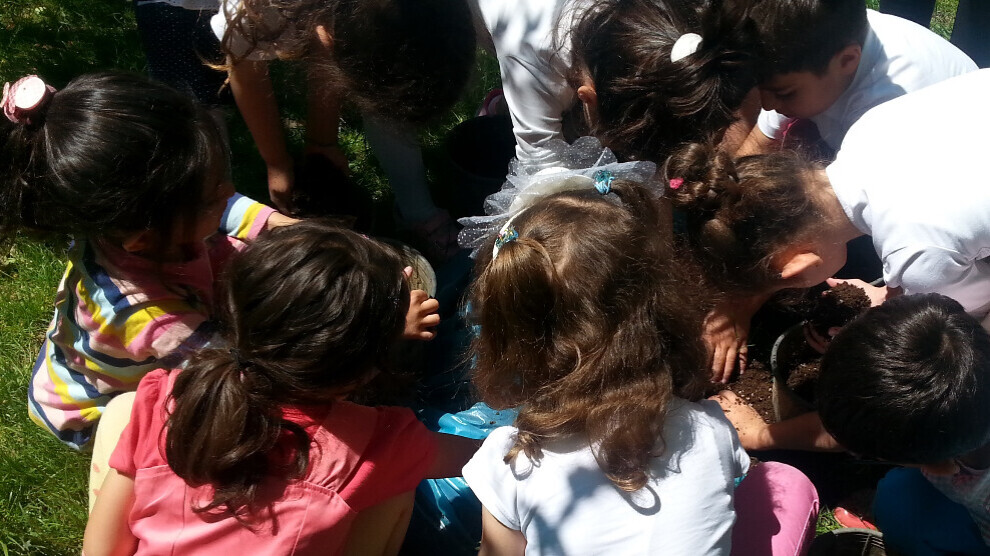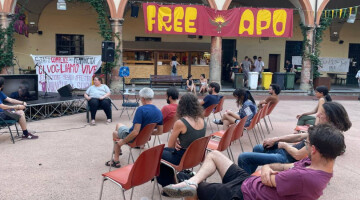Millions of Kurdish children in Turkey and North Kurdistan have to get Turkish education throughout their educational life, especially in pre-school. Kurdish children who cannot receive education in their mother tongue face many difficulties both in school and social life.
Academician and Child Development Specialist Aydemir said that the first two years are very crucial for babies to learn their mother tongue. He emphasized that if they do not learn their mother tongue in the first two years, it will be much more difficult for them to learn their own language later on. “A baby utters his first words when it is one year old, and sentences when it is two years old. Proper learning of the mother tongue is very central to their social and emotional development, because people appreciate proper verbal expressions. A person who has a good command of language gains a place in society. The conditions for developing a language start at the age of 0-6. A person who speaks his mother tongue properly is more successful in social life and can get to know himself and his/her environment better. Much can be achieved through language. That's why mother tongue is very crucial.
WRITTEN EDUCATION IS NEEDED FOR MOTHER LANGUAGE
Aydemir remarked that children learn Kurdish at home before school, but they do not continue to use it when they start school and since they do not get a written education, they cannot form a firm basis to improve their mother tongue. “For these reasons, they learn Kurdish incompetently. Oral language does not provide a solid ground; it must be supported by writing so that its structure can become solid. Kurdish kids begin to learn a language in writing in which they do not have an oral background, which is Turkish. In other words, they learn both languages, but they do not learn both languages in a proper way. This is very superficial. This leads to social exclusion. After all, this is a social fact in Turkey. An incompetence in language causes this. Plus, there is also a political bias towards the Kurdish language.
The conditions in Turkey are known. People whose mother tongue is Kurdish are persecuted through Turkish nationalism. As if they could be blamed for their native language. There is this kind of exclusion in social and educational life. There are so many people who learn Turkish for the first time in primary schools. This was more common in the past, but more recently, children can be exposed to it easily, especially if the internet is used at home. People who receive written education in Turkish are more successful in speaking and educational life. This is a huge disadvantage for those who speak Kurdish.”
THEY FAIL IN BOTH LANGUAGES
Aydemir expressed that receiving education in a language other than one's mother tongue might have negative psychological effects. “This is what I see from the people I speak to. There is suppression first of all. In other words, Kurdish children are forced to speak Turkish at school, not Kurdish, and they cannot express themselves properly because their mother tongue is Kurdish. While talking, they realize that they fail to speak Turkish properly. They do not have self-confidence and self-esteem since they cannot express what they want to say. Therefore, a child who knows both languages can remain weak in both languages.”















